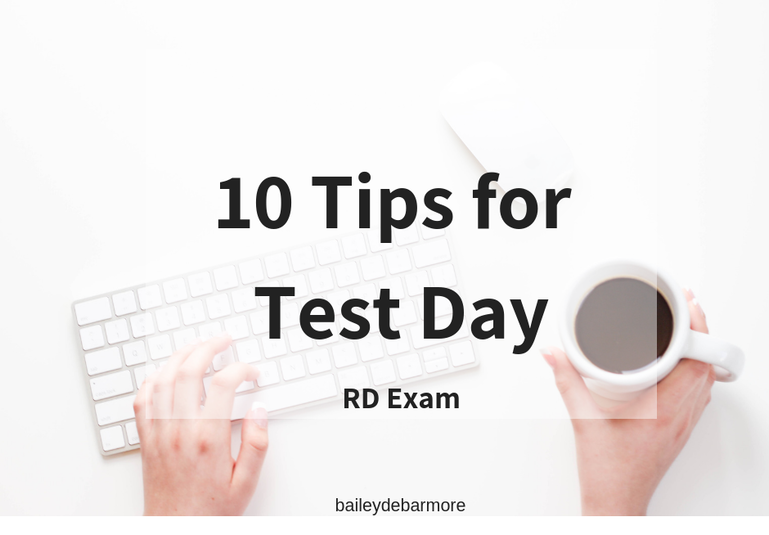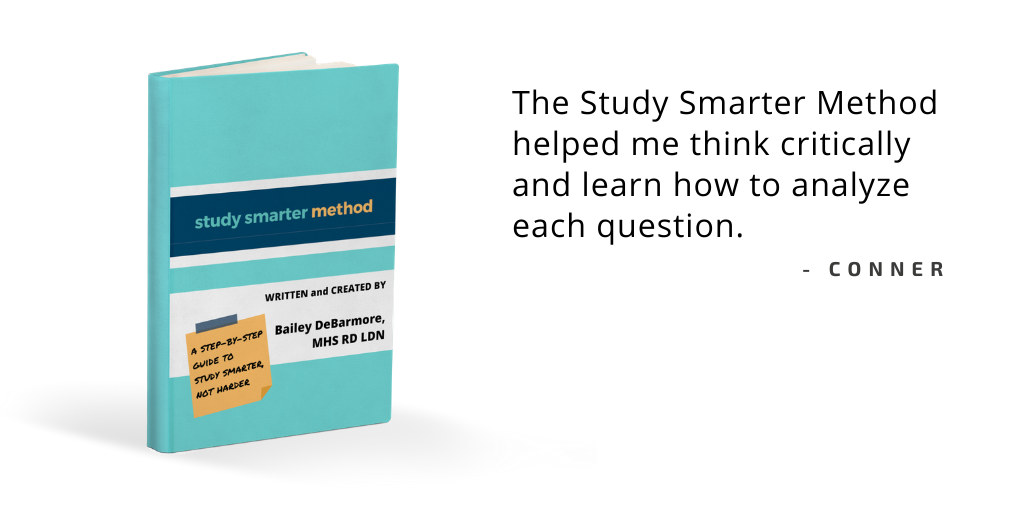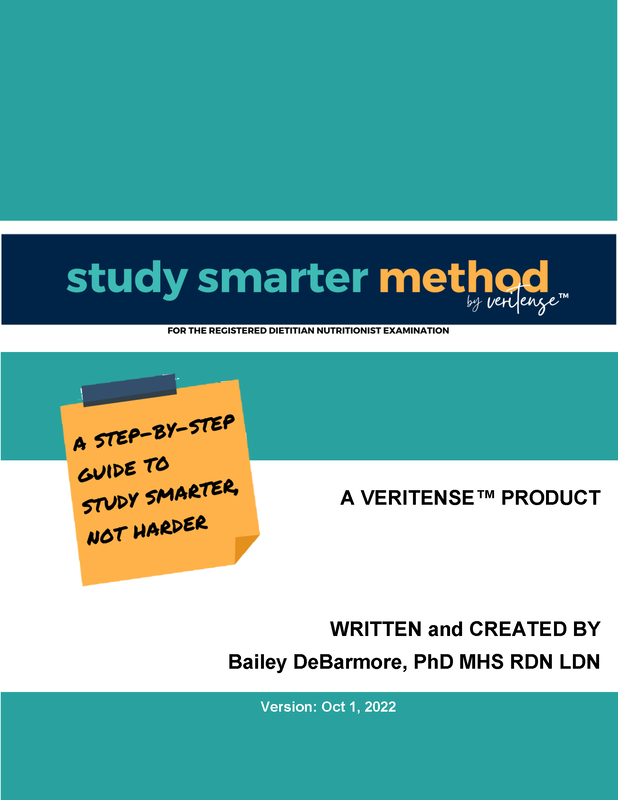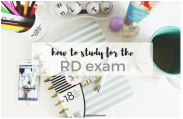|
For the most up-to-date information on the RD exam, including information on the 2022 exam update, head over to my website www.studysmartermethod.com. Whether you've never taken the RD exam or if you're quite familiar with it, these 10 tips will help you keep your nerves and take advantage of the hard work you've put in so far. Before the Test1. Get a good night's sleep the 2 nights before the test Really you should be getting a good night's sleep the majority of your study days - good sleep helps you retain new information, and then retrieve that information on test day. But the TWO days leading up to the test are important for how you feel that day (not just the night before). 2. Stop doing practice questions 4-7 days before the test. If you're following my Study Smarter Method, using the practice question part at this point in your timeline can throw you for a loop when you encounter a new concept. If you've used the Study Smarter method for the amount of time recommended, your use for the practice questions is done. Instead, utilize the study materials you've made from them - recordings, topic sheets, flash cards, and videos. 3. Stay in tune with you If you've worked with me before, you know I emphasize this idea. If you start stressing out, and going through a topic sheet or two will calm you down, then do it! But if the idea of studying makes your hands sweat, then back away slowly from the flashcards. Your emotions and stress level may fluctuate day by day, or even in the same day. Just go with what your brain and body are telling you it needs. 4. The night before the test, go back in your email and look up the instructions for the testing center. What time does the test start? What time do you need to be there by for check-in? These are not the same! With that information, what time do you feel comfortable arriving at the testing center? How long will it take you to get there? Try out the Google Maps web function where you can put in "Arrive by" time, the day, and your start and end locations to see how long it will take you to get there in typical traffic at that time of day. Don't forget about materials like identification, and what is NOT allowed. Test Day5. Leave the study materials at home. The only thing you need to review the day of the test, if anything at all, are equations or formulas that you have trouble remembering. The idea would be to look at them before the test, and as soon as you get to your white board or scrap paper, brain dump that information down. Once they're out of your brain, you don't have to worry about retrieving it later. Double check with your testing center instructions if you're allowed to bring ANY materials in. For example, for the GRE, you can be prevented from taking the test if you arrive with any books, even if they stay in the locker. So it's better to be safe than sorry. 6. Bring all the identification and other items you need with you. Be patient and friendly with the proctor. This doesn't mean small talk - but just smile and be calm. No need to get everyone riled up if you're stressed. You'll be surprised how much better just smiling can make you feel. 7. Have a system for the test. With the Study Smarter method, you've gotten into a groove of practice questions, research, understanding, analyzing, applying. Then with topic sheets and flashcards and recordings, you've got a groove there, too. So when you're starting the test, and halfway through the test, and almost done with the test, remember this system:
There is no "mark and review later" option here, so it's important to use the steps in Tip 7 to stay calm and focused. Let your brain retrieve the information you've worked hard to deposit in that mind of yours. Let your brain work to critically think and evaluate a question, even if the topic is new to you. 9. Think to yourself, what would Bailey say? If you've worked with me for tutoring, think about our phone calls - when we go over a practice question, what encouragement do I give you? What direction do I give you towards or away from a question? How do I ask you to explain your rationale? What extra questions do I ask you? All of that is to form your critical thinking skills, to help you prepare. After the Test10. Pass or not, there's something worth celebrating. If you passed, congratulations! Your hard work has paid off. If you didn't pass this time, that's OK. You put in a lot of hard work, and your effort so far is worth celebrating. You've taken the exam and learned about it, and can equip yourself with that knowledge for the next go-around. If you haven't tried the Study Smarter Method yet, you can learn more about it and the associated study guides at www.studysmartermethod.com
0 Comments
Your comment will be posted after it is approved.
Leave a Reply. |
a blog about health, wellness, nutrition, and fitness from an epidemiologist / dietitian with personal trainer experience
Stay up to date on productivity tips and active learning techniques
Like what you read?
categories
All
|




_250px.png)



 RSS Feed
RSS Feed
